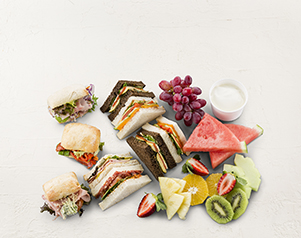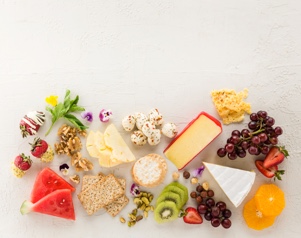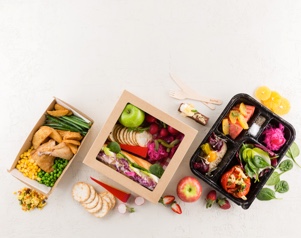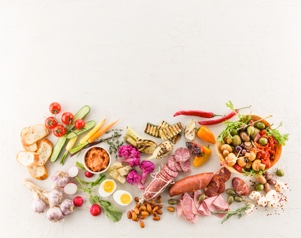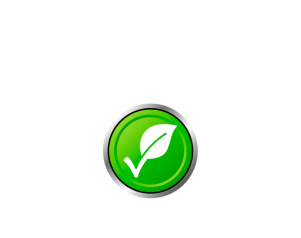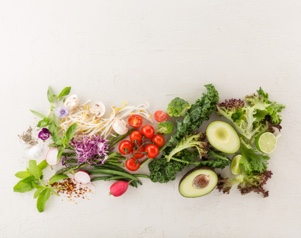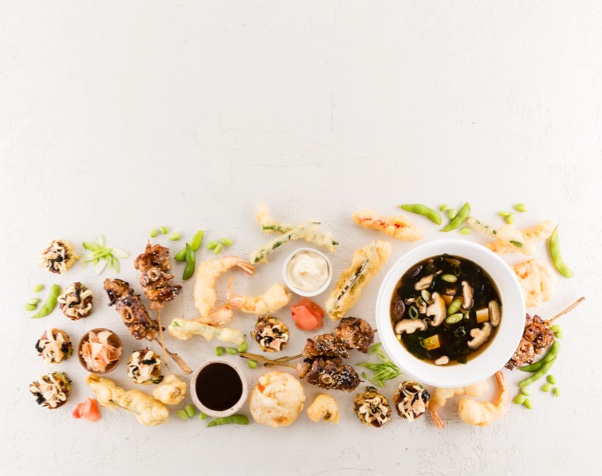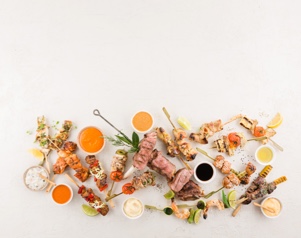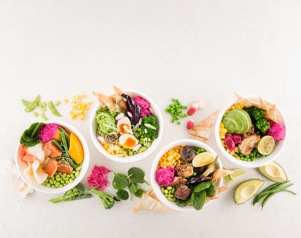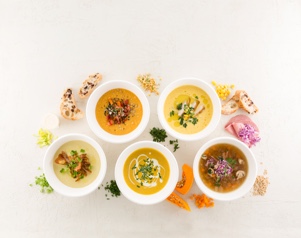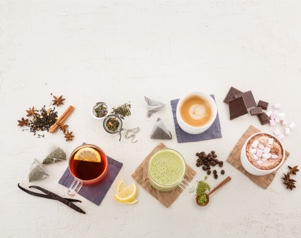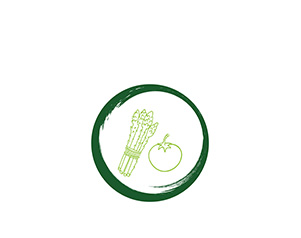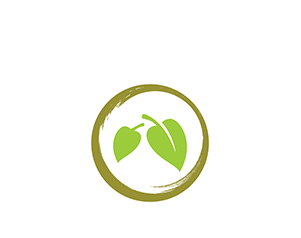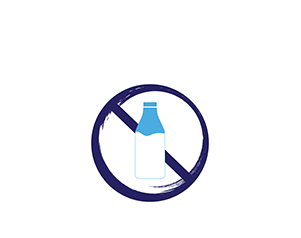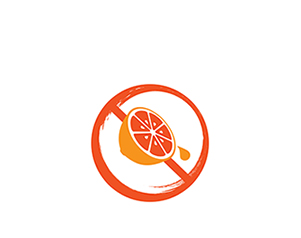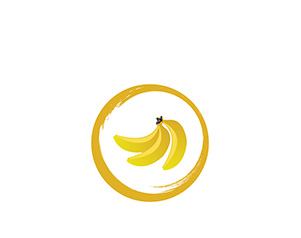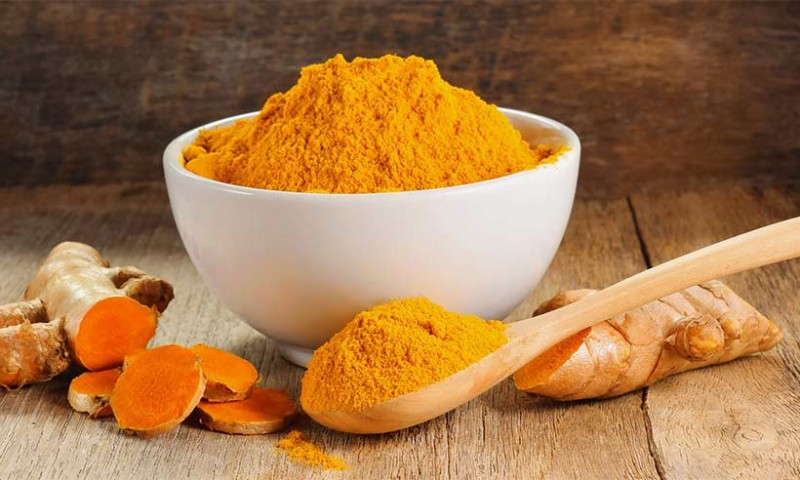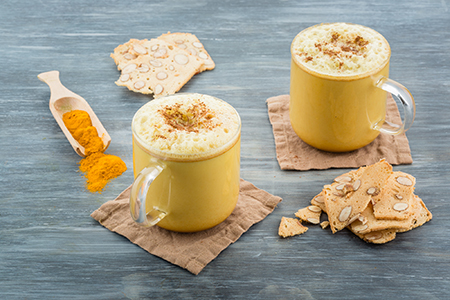SUPERFOOD ME: Turmeric
Turmeric has been taking its turn in the culinary limelight lately, resulting in an increase of turmeric-spiced food trends (you can find recipes for everything from the highly Instagram-able turmeric latte to fluffy turmeric pancakes). Celebrity chefs and famous nutritionists around the world have been tooting the turmeric horn, with one newspaper even hailing it ‘nature’s wonder drug’ (Daily Mail).
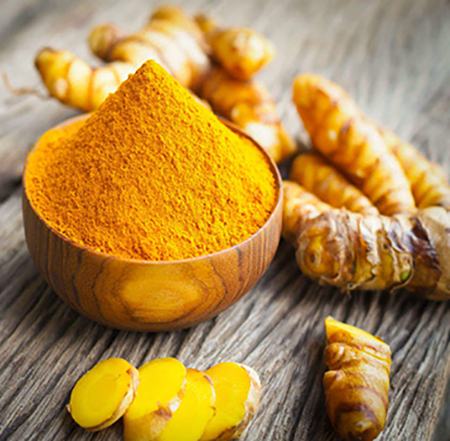
Curcumin is a strong antioxidant and has powerful anti-inflammatory effects, and happens to be the primary active ingredient in turmeric. Let’s take a look at the need-to-know facts:
- A Natural Anti-Inflammatory Inflammation is not always bad – our bodies need a healthy dose of it in order to fight foreign invaders and repair damage. However, while short-term inflammation is beneficial, it can attack your body’s own tissues and become chronic if left unchecked. Scientists report that chronic inflammation has a hand in almost every chronic Western disease, such as heart disease, cancer, metabolic syndrome, Alzheimer’s, and more. It follows that anything that helps to fight this kind of hurtful inflammation will play a major role in preventing and treating these diseases. Sounds good? We think so. Curcumin is an incredibly potent anti-inflammatory and has been known to match the effectiveness of some anti-inflammatory drugs. The bonus is of course no unwanted side effects!
- Antioxidant Booster We have a challenge for you: jump onto Google and search for ‘Oxidative stress and [chronic disease of your choice]’. Most likely a myriad of articles and reports will be available to you, exploring the link between oxidative stress and almost every chronic disease under the sun. That’s because scientists believe that oxidative damage is one of the primary mechanisms behind aging and many diseases. So what is it? In simple terms, oxidative stress occurs when there is an imbalance between the production of free radicals (unstable atoms created by breathing unclean air, consuming medicines and processed foods, and are essentially a by-product of living in the modern world), and the body’s ability to fight their damaging effects by using antioxidants. Unfortunately our body is finding it harder and harder to counteract the effect of free radicals simply because we live in the modern world – where free radicals are generated by simply breathing (thank-you inner-city living). So how does this relate to Turmeric? Well one of the best ways to protect your body from free radicals is to support your body’s production of antioxidants. Curcumin happens to be a potent antioxidant that can neutralize free radicals and boost the activity of your antioxidant enzymes. In short, turmeric is like the antioxidant war general here to wage death and destruction on those nasty free radicals. The result? Keep reading.
- Lowers Risk of Chronic Diseases Curcumin, and therefore turmeric, is believed to have a powerful impact on preventing and treating a range of chronic diseases: Brain Disease: curcumin can increase brain levels of BDNF (brain-derived neurotrophic factor), which in turn helps neurons to multiply and make new connections. Heart Disease: curcumin improves the function of the endothelium – a.k.a the lining of your blood vessels. When this fails, your endothelium fails to regulate blood pressure, resulting in blood clotting, etc. It’s a major driver of heart disease. Cancer: The one thing all cancers have in common is uncontrolled cell growth. Studies show that curcumin affects cancer growth and development by contributing to the death of cancerous cells.
- Fights Depression Studies show that Curcumin works well as an anti-depressant. This is unsurprising given its role in preventing brain disease; depression is also linked to reduced levels of BDNF. One study showed that curcumin was as effective as Prozac (a popular anti-depressant drug) in helping to alleviate symptoms of depression.
- A Sprinkling of Turmeric Won’t Cure You We don’t want to spout untruths. This is why it’s important to remember that a sprinkling of turmeric on your veggies each day is probably not going to cure you of all disease. The truth is, in some cases, a more concentrated dose of curcumin may be more beneficial (which can be found in some natural supplements). However, the overall health-promoting properties of turmeric cannot be ignored, which is why we think that incorporating it into your daily food and beverage intake is certainly a good idea.
You’re invited to Join
Impressive Rewards
to collect Impressive points, for both weekly and monthly specials, for exclusive member promotions and competitions, for new product updates, for catering tips & advice, to receive product sampling invitations, plus much more…



